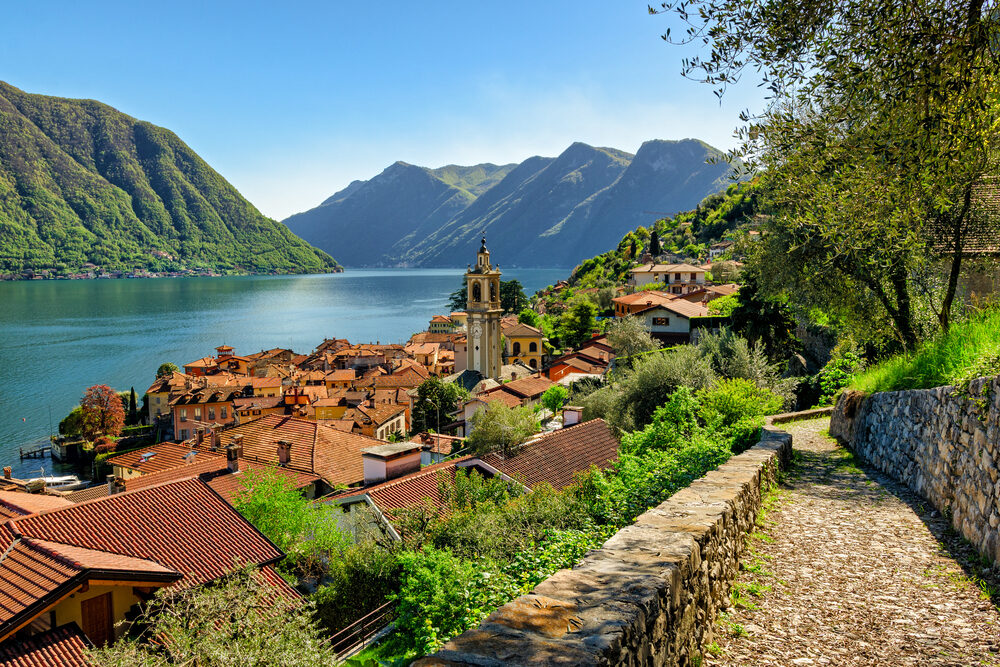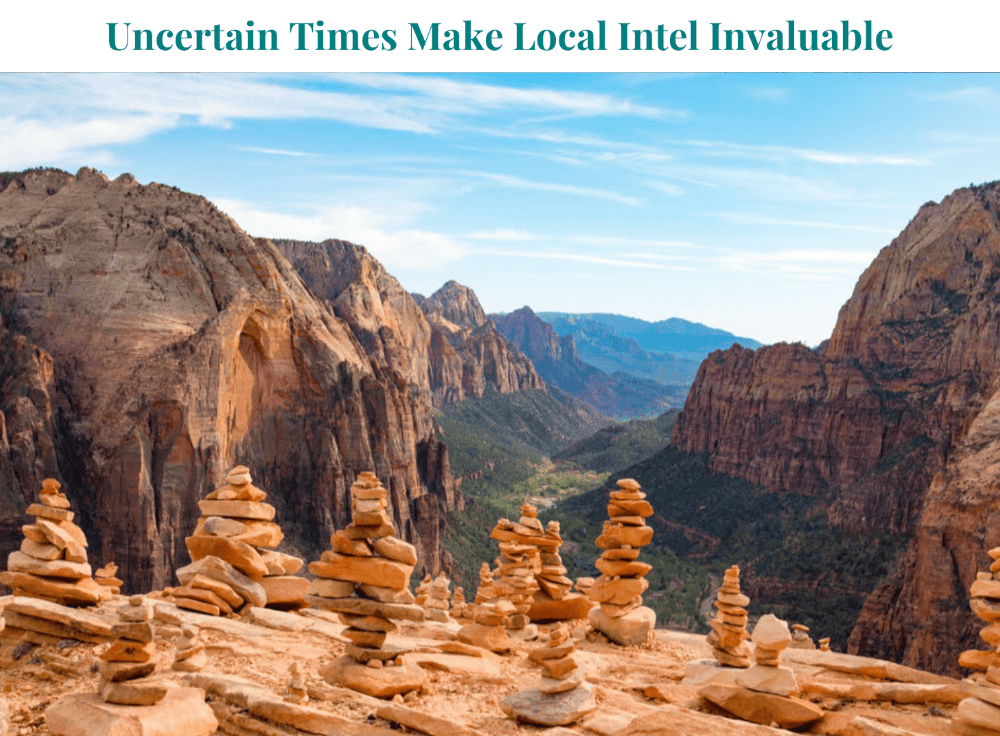Amalfi Coast, Italy: Insider’s Guide
 The view from the terrace of Le Sirenuse, Positano, Italy. Photo: Stefano Scatà.
The view from the terrace of Le Sirenuse, Positano, Italy. Photo: Stefano Scatà.
The insider travel advice on this page is from one of Wendy’s Trusted Travel Experts for Italy: Andrea Grisdale of IC Bellagio.
Armed with decades of experience in Italy (she lives on Lake Como) and the vast list of contacts in her little black book, Andrea can open the doors that are closed to most people (not, alas, George Clooney’s) and satisfy most any request. She interviews travelers in depth to gain a thorough understanding of their travel fantasies, preferences, and pet peeves, and uses that knowledge to craft an itinerary that pairs you with the perfect hotels, activities, guides, and even drivers. A bilingual former guide herself, Andrea knows every time-saving trick for seeing the most famous monuments while also squeezing in the hidden gems. She and her team have the clout to pull strings and ask for favors at Italy’s best hotels, and they have a track record of coming to the rescue 24/7 should the need arise.
Where to Stay and Eat
Best bang-for-your-buck hotels
Hotel Buca di Bacco. This four-star boutique property has a fantastic location in the heart of Positano, right on the beach, and a warm atmosphere. All rooms have wonderful colors and beautiful glass chandeliers; most have an incredible view over the sea, some with a private balcony or terrace. The restaurant serves dishes that immediately remind you of the flavors of the Amalfi Coast: The lemon risotto is one of the best you’ll find anywhere.
Casa Angelina. Located in Praiano, between Positano and Amalfi, this is the place for relaxation and romance. Each of their bright rooms has a stunning view, and the amenities and services are top-notch. Andrea’s travelers enjoy an exclusive sunset sundowner for two at the Seascape Cocktail Bar.
With so many hotels completely booked during high season, Andrea’s travelers also have the option of spending the night in Amalfi Port on a 60-foot private luxury boat—which also gives you the advantage of going to dinner at restaurants only reachable via sea.
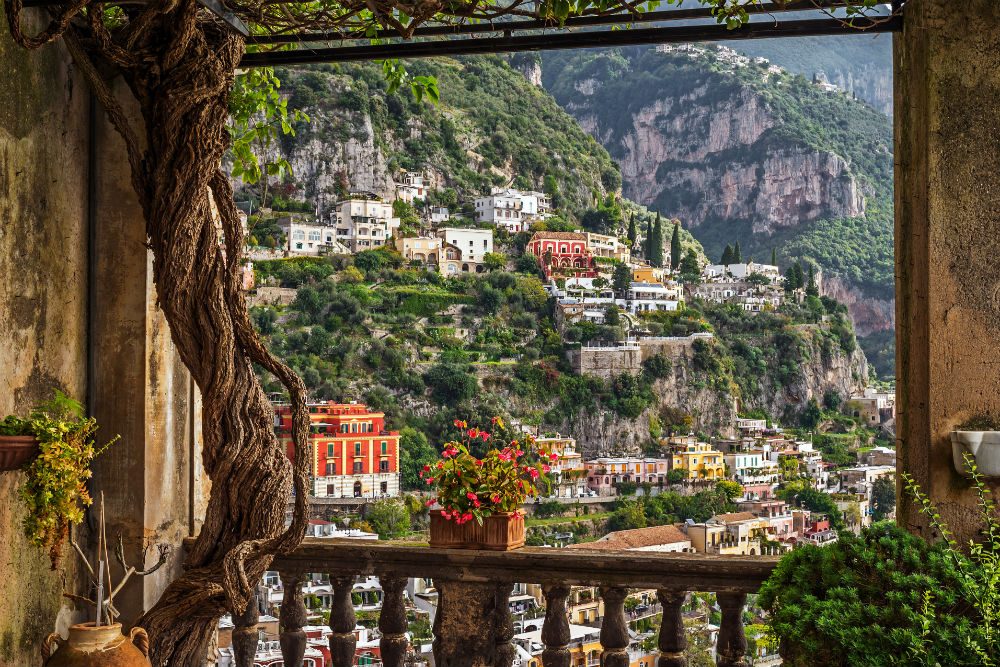
Positano, on the Amalfi Coast. Photo: IC Bellagio
Restaurants the locals love
Trattoria da Gemma opened in Amalfi in 1872 and has been a favorite among locals ever since. The entrance is just off the city’s main thoroughfare, up some well-worn steps. There are some tables along the steps, and more inside the elegant dining room. Much of the food is locally harvested. The lemon risotto with shrimp, fritto misto with crispy zucchini fries, and paccheri pasta are amazing. And if you love desserts, you’ll be in heaven.
Locals head to the hillside village of Scala, just outside Ravello, for the extraordinary desserts and masterful meals served at Trattoria da Lorenzo; it’s the sort of beautiful little eatery most people imagine when they think of a traditional Italian trattoria. Fish is the house specialty, but the pastas are also excellent—and plentiful. Be sure to sample the amazing local cheeses and figs accompanied by wonderful homemade jams.
Ristorante Torre Normanna, in the center of Maori, is a local favorite specializing in typical Campania and seafood fare. Its vegetarian dishes are every bit as good as its meat and fish offerings, which is saying a lot.
Meal worth the splurge
In the village of Sant’Agata sui Due Golfi, between Sorrento and Positano, Don Alfonso 1890 is a destination in itself. Considered one of Italy’s top four restaurants, Don Alfonso serves dishes so beautifully composed they could be considered art, in a sleek setting right out of La Dolce Vita. After a meal that might include rigatoni “Vesuvio” or pasta with mussels and tuna botargo, you can stop by the shop for some bottled sauce or fine olive oil and can even spend the night in one of the suites if you’ve eaten too much to endure the winding roads home.
What to See and Do
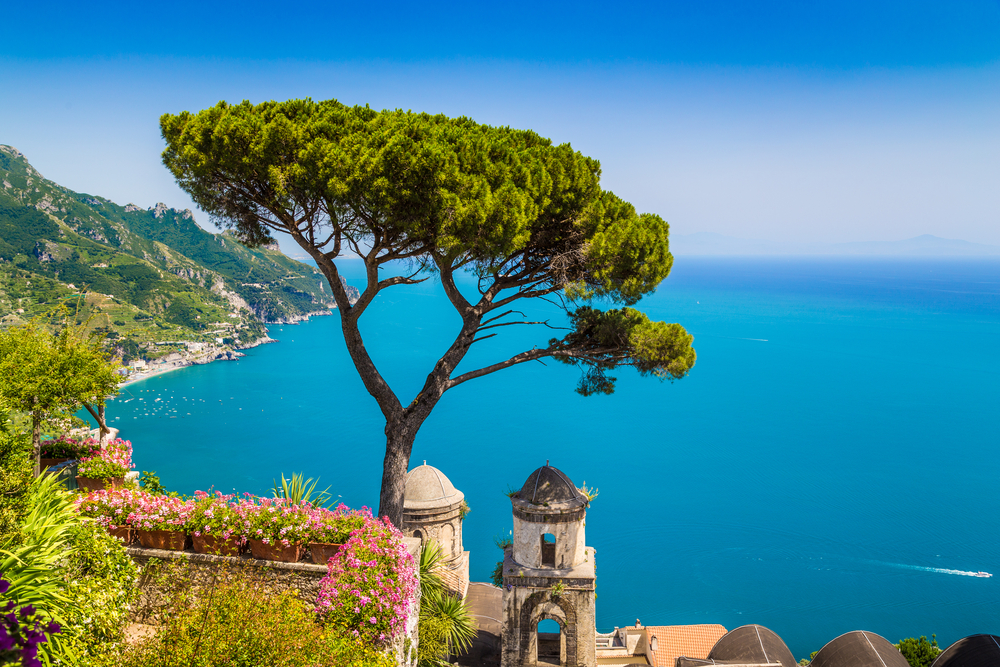
The turquoise waters along the Amalfi Coast. Photo: Shutterstock
Don’t miss
Throngs flock to see the ruins at Pompeii, but Herculaneum—which was also wiped out when Vesuvius blew its stack in 79 A.D.—is arguably better preserved and largely overlooked. The huddled skeletons of people buried by burning ash while waiting for boats to carry them to safety is just one of the haunting and indelible sights here.
Don’t bother
The Blue Grotto is Capri’s most popular attraction and stunning to behold, but you’ll pay a lot of money and wait a long time to be rowed around this loud, crowded cave. The entire island is surrounded by equally beautiful grottoes and tiny beaches that are completely overlooked and can be enjoyed privately and in your own sweet time.
Hidden Gem
La Conca del Sogno is a fantastic open-air restaurant and inn hidden in a corner of the Cove of Nerano and reachable only by boat or on foot. However you get here, you’ll be treated to some of the best and freshest Mediterranean food you will ever taste. The pasta with zucchini is especially memorable.
Cheap Thrills
Wake up early to have a breakfast of cappuccino and brioche with the locals at a neighborhood café. One of the best is Amalfi’s Pasticceria Pansa, near the Piazza Duomo, which has the best coffee and pastries in town.
All the main villages on the Amalfi Coast are very well connected by an inexpensive public boat service: From Salerno, you can jump on a hydrofoil and easily reach Cetara, Maiori, Minori and Amalfi. Stroll through the pedestrian city center in Amalfi, then take the hydrofoil to Capri, stopping in Positano and Sorrento.
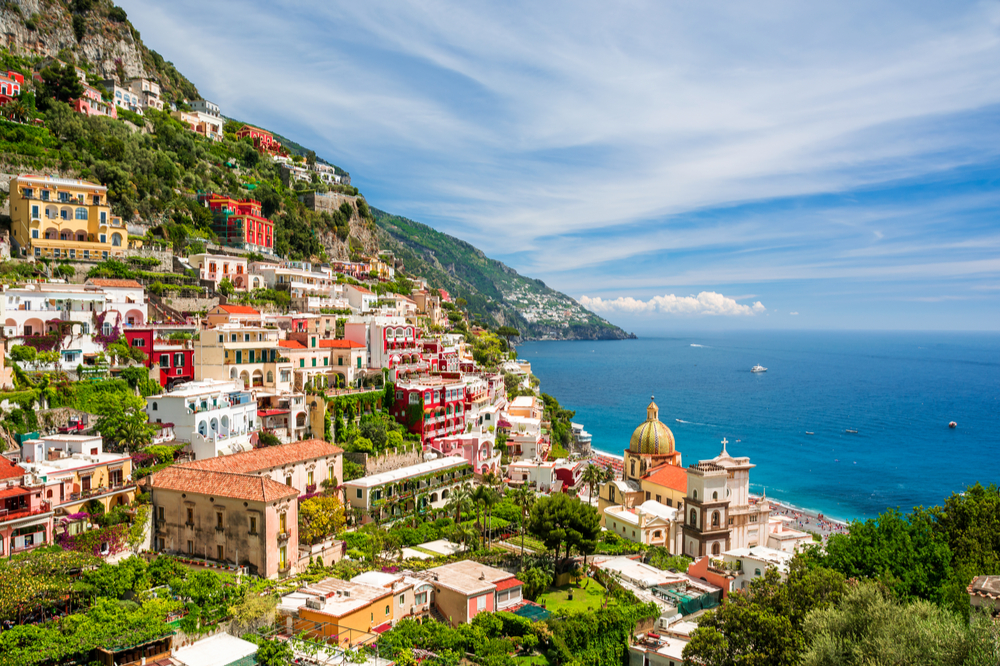
The cliffside village of Positano, on the Amalfi Coast. Photo: Shutterstock
Most Underrated Place
Don’t be afraid to consider Naples. Sure, it’s not smart to walk around dripping with diamonds or a big Rolex watch, but that’s true of any large city. Naples is one of the most fun, energizing, culturally interesting cities in the world, with great shopping, fabulous people, and incredible history (its Archaeological Museum is said to be one of the best in the world). One of Andrea’s favorite private guides there will invite you into his life for a day: Enjoy a cappuccino and brioche with him at his favorite morning bar, meet his mother in her home, then walk his favorite corners of the city, understanding what it was like to grow up here—finishing, of course, with the local specialty in one of the city’s most historic pizzerias.
Bragging rights
Jackie Kennedy spent most of her holidays on the Amalfi Coast and became the most iconic symbol of La Dolce Vita. Andrea can arrange for you to enjoy a day out in Jackie’s very own Fiat 600 multipla, a car custom-made for her by former Fiat owner Gianni Agnelli. After a drive and lunch in one of the places Jackie loved most, enjoy the sea breeze from a private gozzo (local boat) idling along the spectacular coastline, as Jackie used to often do!
Take a step back in time at a beautifully kept farmhouse in Tramonti. The owner will welcome you to her property, where you’ll start by collecting produce directly from the garden and creating your own menu with her: gnocchi, tagliatelle, or tortelloni paired with amazing sauces. Take a break from cooking to taste some homemade cheese and wines. It is here, where time has almost stopped, that you can see how people used to live hand-in-hand with nature, and how they made the best use of the land.
Enjoy (often all to yourself) the many beautiful yet forgotten grottos that line the island of Capri—many of them are on the western side—whilst the masses wait in line to enter the Blue Grotto.
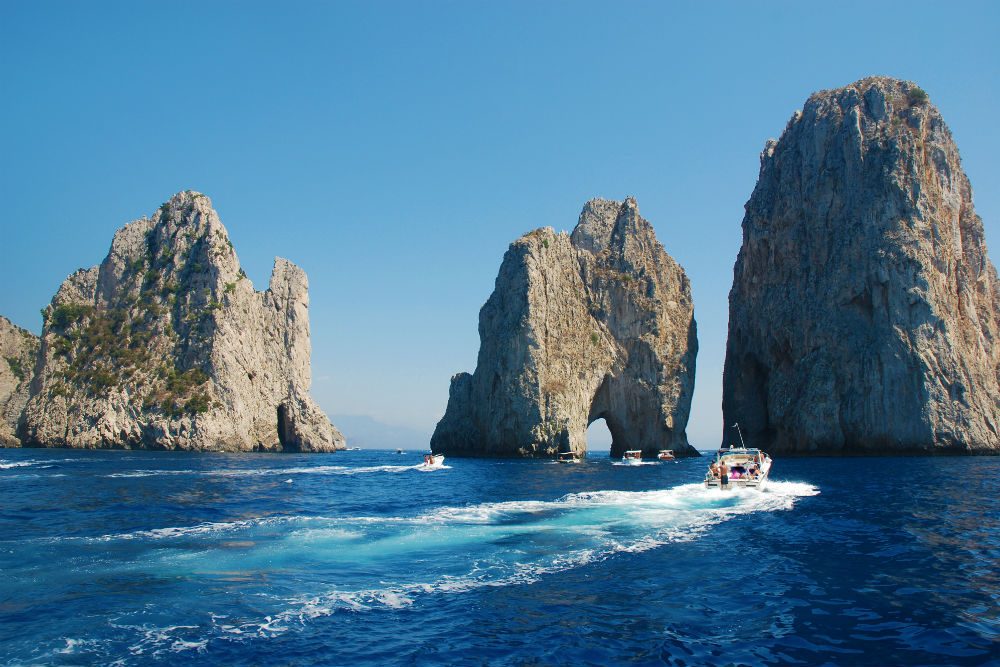
The rock formations known as the Faraglioni, off the southern coast of Capri. Photo: IC Bellagio
Downtime
Get out on the water in a kayak or, better yet, a boat with a captain, so you have nothing to do but enjoy the sea air and the view and whatever you’ve taken aboard to eat and to drink. Your hotel can provide the kayaks; Andrea can arrange for the boat.
Enjoy a hike along the “Pathway of the Gods”: Take in the sights and sounds of the Amalfi Coast from above while mixing with locals as you pass through various villages.
Best Times to Go
October, when the cruise throngs have thinned, hotel prices have dropped (a little), there’s still plenty of sun, and the sea is perfect for swimming. April is also lovely and quiet, though the surf is on the chilly side. The most lively time of year is summer, when the coast bustles and the Ravello Music Festival offers a break from the beach with an international roster of classical, jazz, pop, and dance performers.
Whenever you go, the best time of day to visit Capri is late afternoon, when the day tourists have all gone home, it’s much quieter, not as hot, and you can truly relax and enjoy both Capri Town and Ana Capri in a much more relaxed way.
Worst Time to Go
November through March, when most of the shops, restaurants, and bars are closed for the season. But even then the weather is pleasantly mild, the locals are welcoming, and Sorrento’s eateries stay up and running.
Biggest Rookie Mistakes
Driving on the Amalfi Coast is best left to the pros: Buses move along the narrow, curving roads at remarkable speed and with little regard for cars; parking spaces are virtually impossible to find. Best to hire a car and driver or take one of the frequent and efficient local buses.
Taking the ferry to Capri instead of the hydrofoil. The ferry takes much longer and is a waste of time that would be better spent on shore. And remember: Never buy hydrofoil tickets in advance. If you decide to take an earlier or later departure, you may not be able to use your advance-purchase ticket. Buying at the port allows for much more flexibility.
Thinking that Sorrento is part of the Amalfi Coast. It’s actually around the corner of the headland and located on the Bay of Naples. Though it’s a short distance away, you’ll need to allow at least 40 minutes to drive between the two, due to the traffic and the curvy roads.
Instagram Moments
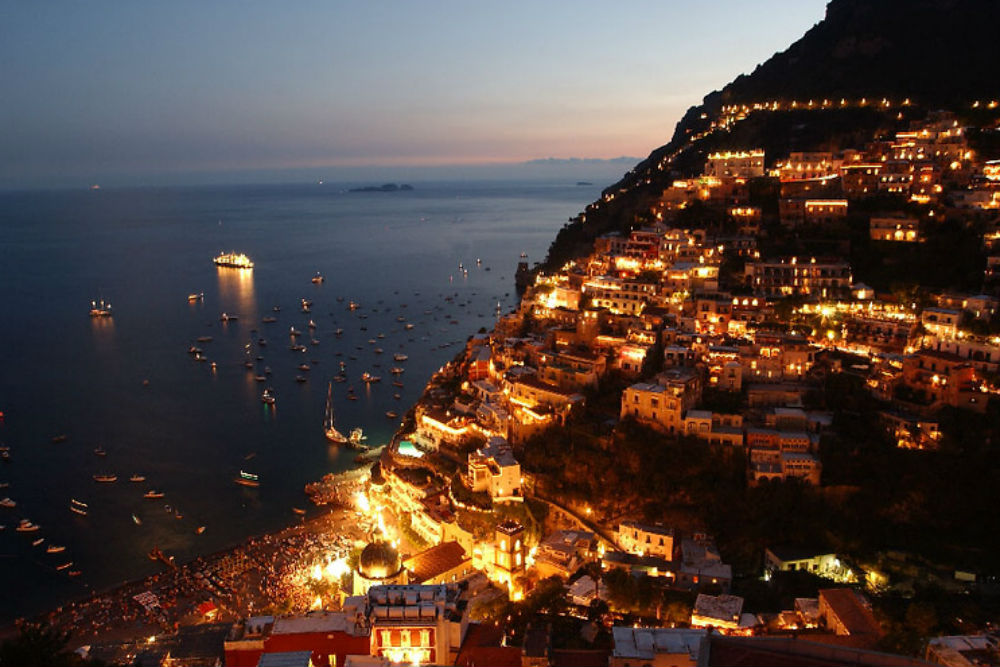
The rooftop terrace of Positano’s Villa Franca Hotel may be the highest point in town and offers sweeping views of the coast and the Li Galli Islands in the distance.
The lunch area near the infinity pool at Ravello’s Hotel Caruso is surrounded by beautifully manicured formal gardens and has panoramic views of the azure Gulf of Salerno and its mountainous coastline.
The views from the terrace of the Monastero Santa Rosa, which stands proudly on the hillside overlooking Amalfi.
The views of the coastline from the best possible place—the sea itself—as you cruise along in your private boat or kayak.
Ristorante La Fontellina, in Capri, has stunning views of the Faraglioni, the famous rocks off the coast.
The Souvenirs
The local mozzarella di bufala is the best you’ll ever taste and nobody leaves without at least one bottle of local limoncello. You can buy both at Amalfi’s Bottega dei Ferrari di Luisa Damasco, which you’ll find in an ancient arched alleyway between the Piazza Duomo and the Piazza dei Dogi.
Capri is full of handmade sandals, the loveliest of which can be found at Canfora, on the Via Camerelle. You can also snag a gorgeous pair in Positano at Safari, just above the main beach.
Beautiful linens can be found in many of the small boutiques, and ceramics too (these mainly in the Ravello area). Make sure you bring an extra bag or leave room in your suitcase for these.
Must-have Apps
Andrea provides all your personalized documents, itinerary, guides, restaurant information, etc. via the Umapped App, but besides that, here are three others you might want to download beforehand:
Capri Schedule provides ferry and hydrofoil crossing schedules between Capri and Naples, Sorrento, and Castellammare in real time. Will also find the ferry port closest to your location.
Capri Insider has recommendations for activities, restaurants, boat rentals, beaches, and beach clubs. The app also offers discounts and freebies at selected businesses. Requires Wi-Fi or data service.
Amalfi Coast Travel Essentials offers a good overview of travel essentials, as well as recommendations on best places to eat, shop, and stay.
Tipping Tip
Tipping is appreciated but not at all expected. In restaurants and for taxi rides 10 percent is sufficient. If the person serving you is also the owner of the business, they would never expect a tip.
Airport Intel
Naples, the airport closest to the Amalfi Coast, is a very busy place that serves a lot of low-cost carriers, so leave plenty of time to get through security.
Do not fly from Naples via Rome to your final destination: It is much easier—and quicker—to drive or take the train to Rome’s FCO airport than to make the connection.


